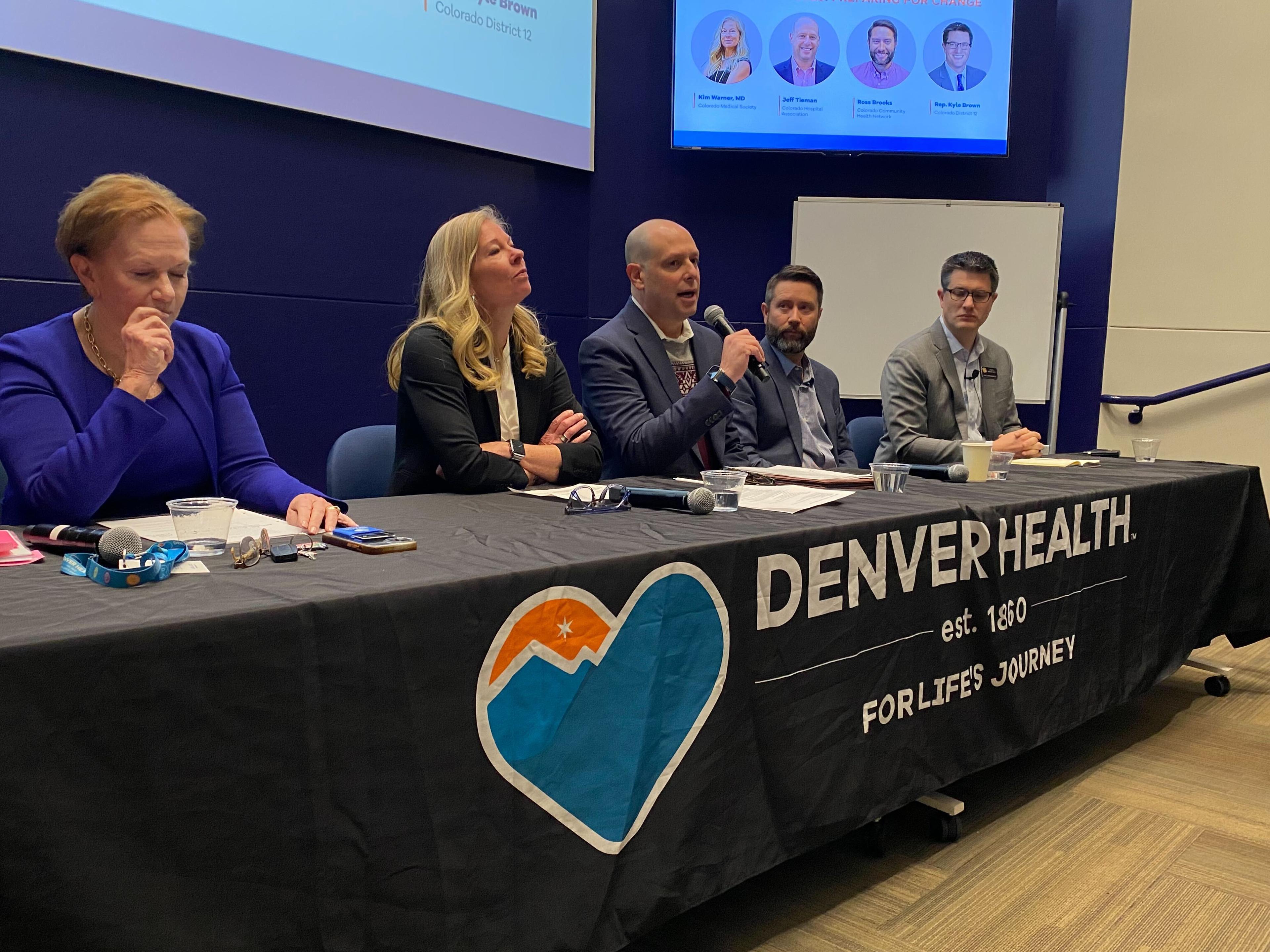
Many Coloradans will be affected as a new presidential administration comes into power next month in Washington, D.C. A panel of health leaders from several key groups, plus a state lawmaker, told an audience in a Denver Health auditorium Tuesday that they're watching and getting ready.
Jeff Tieman, president and CEO of the Colorado Hospital Association, invoked a sports metaphor. Like Denver Broncos quarterback Bo Nix looking for a receiver, scrambling away from defenders, he couldn’t see the whole field. Tieman also said he didn’t have a great view of what was coming.
“I'd say we are in a moment of unprecedented uncertainty,” Tieman said. “We do face some pretty serious political headwinds.”
One big one has to do with Medicaid, the program that helps cover medical costs for low-income people. Donald Trump, the former and future president, has pledged new tax cuts. Cuts to Medicaid could help pay for them.
“I am concerned that Medicaid, at a federal level, may come under attack,” Ross Brooks, CEO of Colorado Community Health Network.
He noted more than half a million Coloradans lost that insurance after a post-pandemic federal policy change. State Rep. Kyle Brown, a Democrat from Louisville, said more than half the state's Medicaid budget comes from the federal government.
And the state is already facing a big budget crunch, so it would be hard to replace “7, 8, 9 billion dollars if they decided to turn that spigot off tomorrow,” Brown said. “So we need to continue to work with our federal delegation to protect that.”
Panelists said blue states will need to work with red states on the issue, as well as on the future of Affordable Care Act subsidies.
Dr. Kim Warner, with the Colorado Medical Society, the state’s largest doctor organization, and an OB-GYN, said she'll be watching closely to see if restrictions to reproductive rights are implemented.
“Access to birth control, access to prenatal care, access to fertility treatments,” Warner said, adding it’s important for the health system to be “really shining a light on maternal morbidity and mortality.”
Other concerns raised at the panel included how many privacy protections will remain for LGBTQ+ and immigrant patients.
Lawmaker Kyle Brown expressed another worry, about public health being eroded if faith in or funding for life-saving vaccines gets undermined. “We cannot promote healthy living if children are dying of polio,” he said. “We need as Coloradans to come together and push back against a culture of misinformation and conspiracy theories that could fuel a public health crisis in Colorado and across the nation.”
He also underscored the importance of gender-affirming care, following a question from the audience. Denver Health CEO Donna Lynne said the hospital provides it.
“We must continue to protect access to gender-affirming care in Colorado,” Brown said. “Just like we protect access to reproductive health care and many other types of health care, Colorado has become a beacon for many communities, including the LGBTQ community who seek lifesaving care.”
Jeff Tieman, the hospital association chief, said he expects to see intense financial pressures across the health system. For example, about seven in 10 Colorado hospitals have a thin, flat or negative operating margin, he said.
He reminded the audience that the pandemic taught the value of working together.
“We will, I think, find our way through the next period of time,” he said. “And it'll be really important that we stay unified.”








